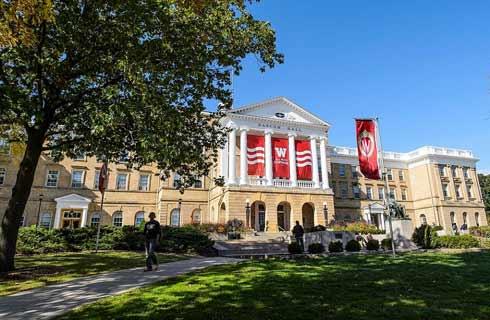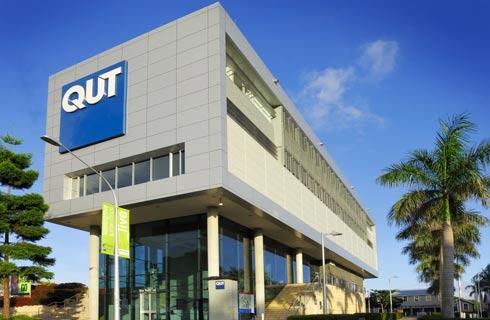文学硕士-数学
Master of Arts (Thesis) - Mathematics

学历文凭
Masters Degree (Research)

专业院系
Division of Humanities

开学时间

课程时长

课程学费

国际学生入学条件
Applicants seeking admission to a programme of study comprising of papers and a thesis (240 points combined) must either
Applicants seeking admission to the programme of study comprising the 120-point thesis only on the basis of completing the degree of Bachelor of Arts with Honours or the Postgraduate Diploma in Arts Subjects or equivalent must:
- be a graduate with an average grade of at least B+ for the appropriate 300-level papers, or
- have alternative qualifications or experience acceptable to the Pro-Vice-Chancellor (Humanities).
- have undertaken a programme of study that provides adequate preparation for the thesis, and have achieved a grade of at least a B+ for the research report, thesis preparation, dissertation requirement, or relevant preparatory papers of the qualification concerned.<>/li>Applicants must normally have achieved an average grade of at least B+ in the papers at the highest level in the programme.
IDP—雅思考试联合主办方

雅思考试总分
6.5
- 雅思总分:6.5
- 托福网考总分:90
- 托福笔试总分:160
- 其他语言考试:Pearson Test of English (PTE) Academic - Overall score of 58 with no communicative skills score below 50.
CRICOS代码: OO0004
申请截止日期: 请与IDP联系 以获取详细信息。
课程简介
A short definition of Mathematics would be “the study of quantities and how they are measured, combined, related, and operated upon”.We use mathematics for practical things like organising the arrival of materials on a building site in order to reduce storage; encrypting and decrypting internet messages; modelling blood flow through a damaged heart; and predicting the break-up of ice floes.These are all mathematics in action – mathematics making a real difference in the world where we live. Mathematics looks at the distribution of prime numbers, the properties of geometric figures, how dependent variables change, and what happens when you add up infinitely many terms.You build a solid foundation for analysing and understanding the mass of quantitative data that is available these days. You develop problem solving and organisational skills that are highly sought after by employers. You learn to think both logically and creatively. You discover an amazingly varied and profoundly rich science that has an intrinsic beauty. You get your mind around some of the ancient problems that have fascinated humans for centuries.Career options for Mathematics graduates are much wider than you might think. Many students take jobs where mathematics is not the main focus of the business, and yet their mathematical skills are their greatest asset. That is because mathematics and the analytical and logical thinking that it teaches are vital in understanding and solving all manner of quantitative problems, from electricity generation to data compression, from weather forecasting to the study of bone density loss.Mathematics graduates, especially those with a well-rounded background in mathematical, statistical, and computer skills, have a qualification that integrates perfectly into the modern, technology-based world. Applied mathematicians are in demand wherever employers need deterministic models, for example, in seismology and the earth sciences, meteorology, the chemical and forensic industries, health, ecology and conservation, transportation and scheduling, engineering, and computing, to name a few. And for those with both applied Mathematics and Statistics, i.e. a background in both deterministic and stochastic models, one can add to the above list the areas of social science, financial services and insurance, epidemiology, quality assurance, economics, policy, government, and many others.
相关申请
 预科
预科 奖学金
奖学金 实习机会
实习机会 在校学习
在校学习 跨境学习
跨境学习 校园授课-线上开始
校园授课-线上开始 在线/远程学习
在线/远程学习
开学时间&学费
学费信息仅供参考,请与IDP联系以获取详细信息
| 开学时间 | 时长 | 学费 | 地点 |
|---|
学校排名

世界排名201
数据源:
泰晤士高等教育世界大学排名
关于奥塔哥大学

成立于1869年的奥塔哥大学是新西兰第一所大学,拥有丰富而杰出的历史。奥塔哥大学在研究和教学方面享誉世界,在QS世界大学排名中位列全球前1%。奥塔哥大学在商业、健康科学和人文科学等领域提供了大量而多样化的学习选项。学生可以从200多门课程中选择。该大学在就业能力、国际化、教学和研究等方面均被QS评为五星。根据高等教育委员会(TEC)的教育表现指标,奥塔哥大学在学生表现和留存率方面也被评为新西兰第一。这强调了奥塔哥为学生提供的教育质量。该机构在新西兰各地都有校区,在达尼丁、惠灵顿、奥克兰、基督城和因弗卡吉尔都有校区。奥塔哥大学的学生群体也是多元化的,达尼丁校区85%以上的学生来自城市以外,全校有3000名国际学生入学。奥塔哥大学的学生享有良好的毕业成果,95%的学生在毕业后继续深造或就业。
本校相关课程
其他相关课程

数学高级(荣誉)学士学位
 伍伦贡大学
伍伦贡大学泰晤士高等教育世界大学排名:247
学历文凭
Bachelor Degree with Honours
开学日期
课程费用总额


数学教育学士学位(院长学者)
 伍伦贡大学
伍伦贡大学泰晤士高等教育世界大学排名:247
学历文凭
Bachelor Degree
开学日期
课程费用总额


统计学士(荣誉学位)
 澳大利亚国立大学
澳大利亚国立大学学历文凭
Bachelor Degree with Honours
开学日期
课程费用总额


统计研究硕士
 南澳大学
南澳大学学历文凭
Masters Degree (Research)
开学日期
课程费用总额


商科学士/理学学士(高级数学)(荣誉学位)
 悉尼新南威尔士大学
悉尼新南威尔士大学学历文凭
Dual Degree
开学日期
课程费用总额


理学硕士(精算和金融科学)
 科廷大学
科廷大学泰晤士高等教育世界大学排名:256
学历文凭
Masters Degree (Coursework)
开学日期
课程费用总额










 新西兰
新西兰





